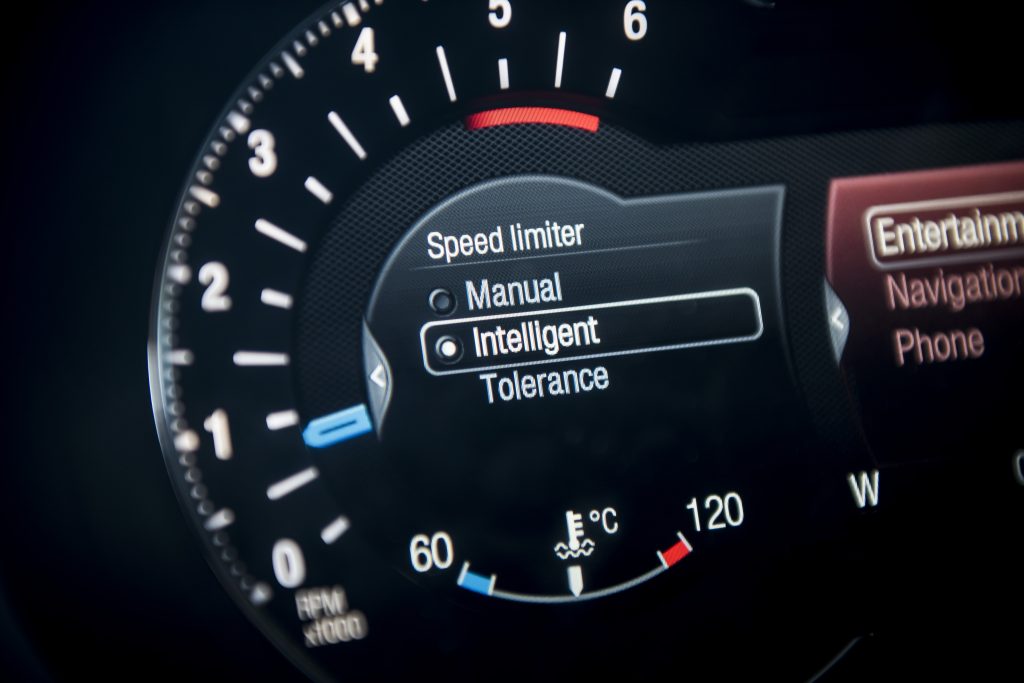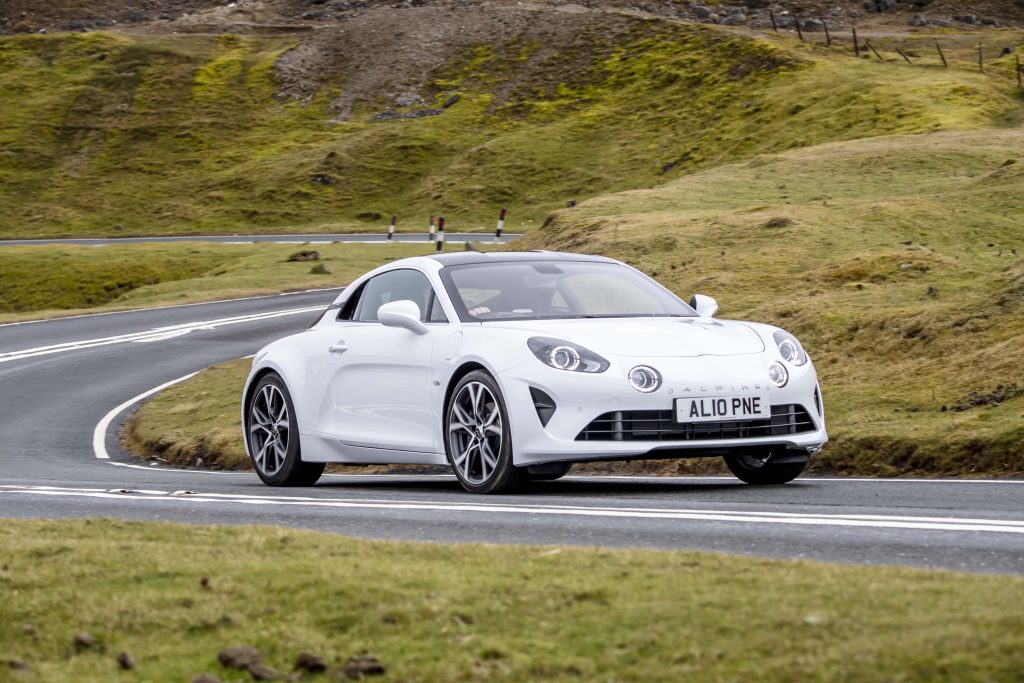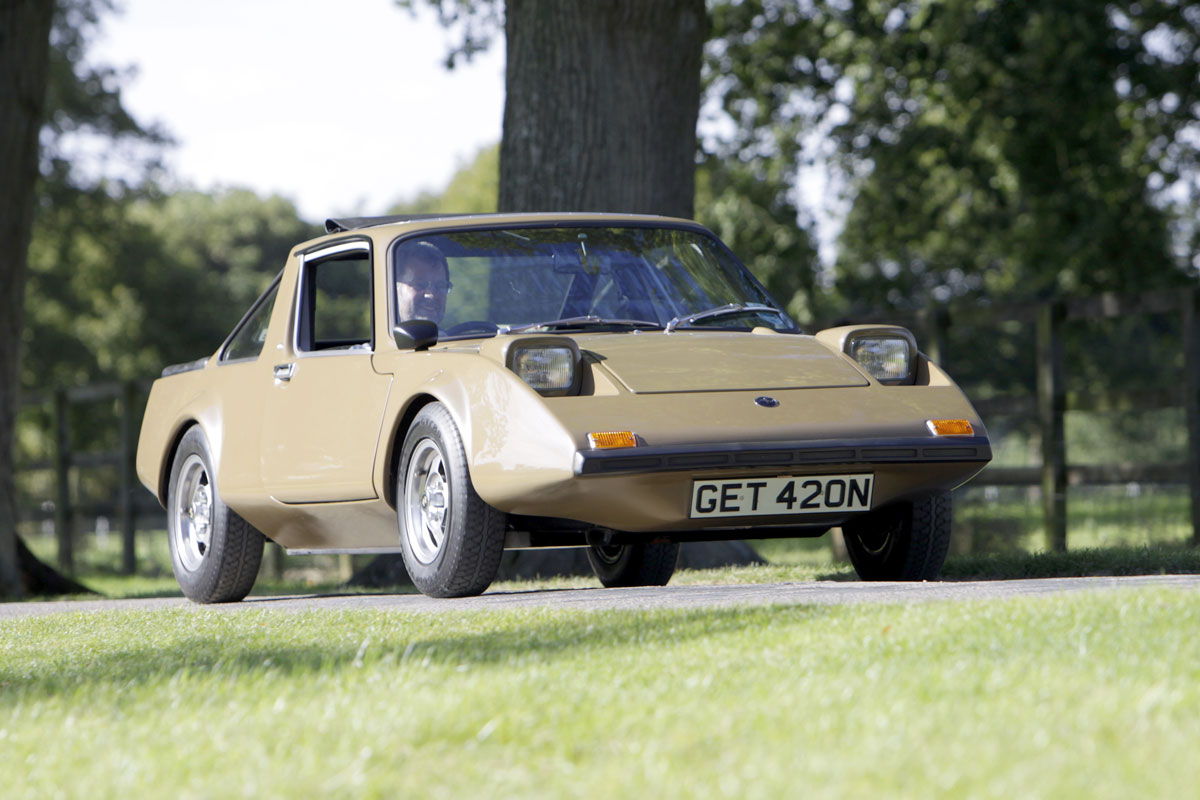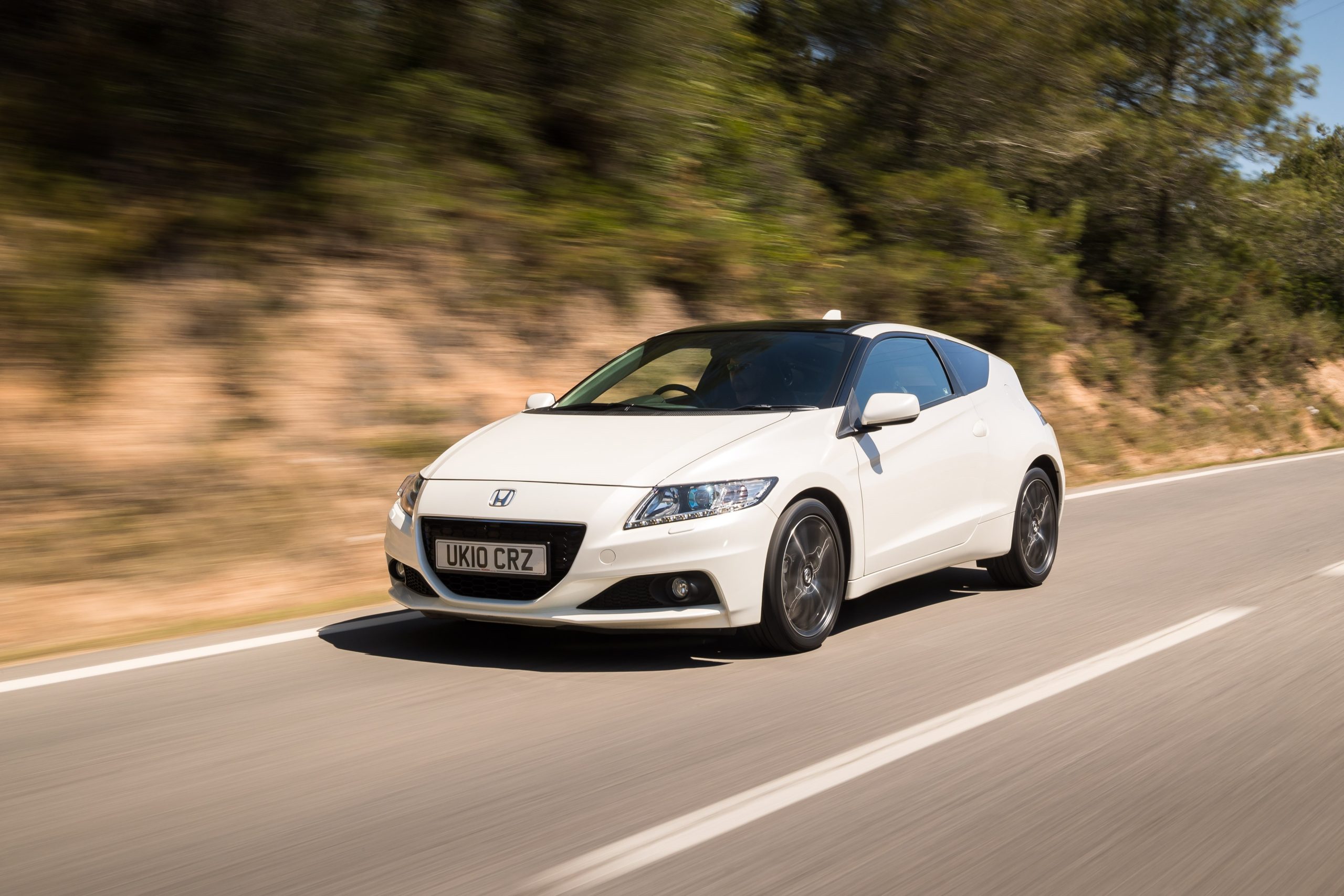Please don’t take this the wrong way, but you’re stupid. It’s nothing personal, and you haven’t done anything wrong to deserve the label. And if it’s any consolation, you’re not alone; I’m a doofus too, and so is every other driver buying a new car.
The problem is – and please, don’t bother trying to persuade anyone otherwise – your eyes are failing you. Yes, you may have had an eyesight test just last week and yes, the optometrist may have declared that your eyes would be the envy of any seasoned bird watcher, but take it from those who know better, you’re a menace behind the wheel who couldn’t recognise a traffic light or speed limit sign even if it was mounted on the bonnet.

Then there are your reactions! A sloth could do a better job of steering around an obstacle in the road. As for stepping on the brake pedal, can you even be trusted to remember which out of no fewer than three pedals – three, I tell you! – applies the slowy-down things?
And let’s not get started on knowing your lefts from your rights, or raising the seat high enough to peer over the top of the steering wheel. As for the two second rule, well, you are that fool.
Face it: it’s time to hang up your driving gloves – whether a nicely aged stringback or metaphorical pair.
At least, that seems to be the attitude of our good friends at the EU. They’ve been busy for the past… ooh, let’s see… 10 years or more working on the anonymously titled General Safety Regulations 2, the difficult second-album follow up to General Safety Regulations.
What’s that, you may ask? GSR2 sets out to make new cars safer, in part by ruling that all new cars launched after 6 July 2022, regardless of price or engineering suitability, have to come with intelligent speed assistance and emergency lane-keeping systems, amongst a host of other active and passive safety features including data recorders. From July 2024, existing cars already in showrooms will have to be modified to include this safety kit to stay on sale.
Taken at face value, anything that can help prevent an accident and lower the rate of injuries and fatalities on our roads is a good thing.
Unfortunately, there are increasing numbers of reports of the technology going rogue. The Sunday Times, amongst others, has highlighted a surprising number of cases where intelligent speed assistance systems have proved anything but clever, misreading a 30mph sign for a 100mph sign (which, no prizes for guessing correctly, doesn’t exist in the UK) and taking off like a scalded cat.
The idea is that, when active, the cruise-control-type system uses a camera to spot speed limit signs and adapt the vehicle’s speed to the local limit. Think of it as an extra pair of eyes for a driver.
Except, surely, it’s human nature for drivers to see this type of convenience as one fewer thing for them to have to think about?

And then there are the lane-keep assistance systems, which prompt the driver and can even steer a vehicle if they think it’s wandering from its intended path. These can work well on well-marked motorways or dual carriageways. But, although they can be switched off, I have lost count of the number of cars I have reviewed over the years where the system has been overwhelmed by simple things like an absence of road markings on country roads, or decided to perform an emergency stop because of the proximity of a car parked at the side of a bend or even because it was challenged by a simple dip in a road.
So the tech isn’t reliable, yet it has to be fitted to new cars sold in the EU and UK (which is following the EU’s timeline). It may lull drivers into a false sense of security and mean they pay that little bit less attention at the wheel. And it costs a small fortune.
That last point is as painful for drivers who want an affordable car as it is for car enthusiasts. Small, cheap cars have been killed off because fitting them with all the safety and emissions equipment means there’s no profit left in them. So affordable new cars are now a thing of the past – bye-bye Fiesta, for example. Meanwhile, the kind of cars that driving purists love to champion are also on the ropes.

The GSR2 rules apply to all the mainstream car makers, because the exemption volume that was agreed to by the EU is capped at a paltry 1500 cars across the EU. Autocar reports that this is a problem for the likes of Alpine. Its acclaimed A110 sports car – a bit of a slow burner if ever there was one – has just enjoyed its best year of sales since reaching showrooms in 2017, comfortably above that 1500-car limit.
Setting aside the question of whether or not the sort of people buying an A110 in the first place want active driver aids, it doesn’t make financial sense to re-engineer the A110 to include intelligent speed assistance and an emergency lane-keeping system. So Alpine will be forced to sell fewer of them in France and the UK, and try its luck in markets where GSR2 rules don’t apply. And I think we can all predict how this will impact any potential replacement for the A110.
Even Japanese giant Toyota finds itself caught out by GSR2. Its GR86, one of the last relatively affordable fun driver’s cars money can buy, will have a comically short shelf-life of just two years because it’s built on the platform of the old GT86 and can’t be cost-effectively adapted to accept the safety kit.
Even as law makers add more safety kit to new cars, though, UK road fatalities have been static for the past decade.
In case you hadn’t guess it, GSR2 is the EU’s path to enabling fully driverless vehicles, and while I’m still to meet anyone who tells me they can’t wait for the arrival of autonomous cars, nothing but nothing is going to stand in the way of the rule makers who have decided we’re too stupid to drive.
Check out the Hagerty Media homepage for daily news, features, interviews and buying guides, or better still, bookmark it.










I think the most dangerous thing is automatic headlights… how often has a car (usually silver, because that’s what most owners of upmarket cars choose) suddenly loomed out of daylight fog with no lights on? “My headlights are automatic”, they say, refusing to understand that the ‘intelligent’ system can’t recognise the fact that the surroundings are bright, but visibility is poor.
Exaggerating? I have a friend who just CANNOT understand that on occasion he may need to over-ride his automatic headlamps, no matter how many times I explain it to him. “My headlamps turn themselves on (and I’m very proud of them).”
I have recently retired after a career in the motor body repair industry spanning more than 50 years.
Working in body repair shops during that time in one capacity or another, also i have during this time been a independent and a staff motor engineer for insurers.
The best repairers these days have to follow manufacturers methods to correctly and safely repair modern vehicles, and they are audited for compliance by such organisations as British Standards .
Adhering to the methods can make repairs expensive due to the type of ADAS systems the vehicle has and what the manufacturer say you must do to safely effect a repair.
The repair industry are not in my opinion seeing any down turn in work even though this type of safety equipment has been on most vehicles for some years. And Joe public will very often at the time of the damage assessment, walk you around their car pointing other damaged areas asking for a separate estimate for their consideration.
They usually start by saying something like while you have the paint in the gun how much to repair my front bumper !
It could be that small damaged area to a front or rear bumper which on an older vehicle without such technology could be repaired for something like £300-£400.00.
On a vehicle where the manufacturer states that repairs to these panels are not permitted due to the technology that exists behind, then that repair can turn in to something more like £1500.00.
In a lot of cases Joe public already feels that £300-£400 is out of their budget, so £1500.00 is usually greeted with total disbelief, a failure to understand ad accept why he costs are this much, and the retort that they know someone who does a bit of work on the side for a fraction of the £300.00 notional figure for a vehicle without the technology.
So, in summary, the manufacturers can be forced to build cars to contain ADAS systems, repairers can be forced to maintain and uphold the integrity of repairs by complying with manufacturers methods, but how can we be sure the vehicle owners respect and understand the technology. How do we know when buying a used vehicle with this type of equipment fitted, that the vehicle has not been got at by Fred in the shed to save the previous owner some money.
Many new cars are leased, PPC is a way of financing new cars on a fixed term.
The vehicle has to be returned in a pretty much undamaged condition at the end of the lease, and it is not rare to find people that have acquired vehicle’s using the PPC method to finance the vehicle, to be hawking them around body shops trying to bring the vehicle back the standard they feel is acceptable for the return to the dealer, but also has to be in their usually tight and unrealistic budget.
I could go on honestly for hours about the hypocrisies that now exist, and my fears about things.
But for now, i would say. Buyer beware.
The states (EU and UK) are progressively depriving us all of freedom and liberty. We can’t stop it. Those with power in the motor sector are frightened to use it. You don’t get a gong for challenging the establishment. Motorists have no real representation. We are a gullible cash cow. The media continues to ask the AA (& occasionally RAC) to comment. But these are commercial companies do not represent their contracted subscribers. Unless everyone takes an interest in (horrible) politics and start to learn then vote, we will continue to get rubbish governments who continue to manipulate with impunity. The cost to us all and UK plc is frightening. Help!
European politics is partly the disaster that two wars were fought to prevent. Our efforts didn’t quite fully work. Those involved are entrenched civil servants in addition to the politicians, and whilst their salaries and pensions are no longer directly at our expense, to get them off your back policy wise, it would be necessary to press a certain button.
On Graeme Aldous’s point, the other irritation is coming up behind totally unlit cars. Because the so-called driving/running lights are on at the front, therefore often causing the dash to be lit, the effwhit at the wheel either assumes the rear is lit or does not care (it’s OK, I can see where I’m going).
I’m an old git with 40 years in the automotive industry and have to say I do not agree with all of the ADAS technology going into cars! It’s taking away the responsibility of the driver to actually drive the car considerately, not only to their car but also other road users and safely, by expecting the cars systems to get them out of trouble when they’ve simply not been paying any attention. These systems ‘do’ very much lead drivers (especially younger drivers) into a false sense of security and as such, they don’t pay enough attention to their driving standards. I can remember when ABS was first introduced, an Audi driver expected the brakes to stop the car safely regardless of how he was driving the car or the road conditions – needless to say he crashed his new Audi. Look how much people now rely on Sat Nav’s – whilst a very useful bit of technology, many drivers don’t bother reading the road signs anymore. Then there’s the risk of a driver getting into and driving another car without the same level of ADAS equipment that they are used to??? One might think that the powers that be are moving us away from the enjoyment and ability to actually drive a car toward full automation! Then as Neville Amos has commented on the crash and damage repairs to modern cars, in that if the repairer doesn’t follow the manufacturers guidelines and policies, who’s to say the car is safe to drive again. I suspect this is why so many modern cars are written off as uneconomical repairs – but then still end up being ‘repaired’ and sold again! All of this equipment and electronics simply adds weight to any car in which it has been installed, which is another reason why smaller cars are disappearing as they cannot accommodate this amount of equipment! I’ll be sticking to older more analogue cars for every day use, and classic cars for the fun of driving thank you.
Trevor, i am absolutely with you.
Could not argue with a single word.
I had a lady complain a few years ago that the loan car we gave her son while repairing his car, did not have air conditioning.
And she stated that her son had never driven a car without Air conditioning before and she felt that put him at some kind of safety risk as the weather was particularly hot that summer.
What will it be like when the complaint is that the loan car does not do the braking for her son and does not keep him in the right lane.
We in my opinion, simply should not be relying on this type of equipment to do our driving for us.
If that makes me another old git then so be it.
I thought the benefit of the UK leaving the EU was so it didn’t have to abide by new EU legislation?
The BREXIT dividend did not take into account our Civil Service which has always been extremely pro Europe and culturally married to the perpetuation of needless bureaucracy. As Hancock is finding out, trying to tell these feckless time wasters to ‘get on with it’ results in multiple bullying complaints. We all despair………..
Correct and it applies to electric vehicles, hydogen powered vehicles, the lot.
If thier aim is to ban all private transportation except pedal bicycles (that is the obvious long term aim in London), they should just get on and do it right now, rather than this ‘death by a thousand cuts’ process. Not sure how many would get re-elected though!
Perhaps we need to learn to ride a horse in town?
None of the obvious downsides matter to the rule creators and enforcers. For one main reason: Private transport and freedom of movement is to be restricted.
…and the issues people have dealing with the DVLA and their interpretation of what constitutes a modification (or repair) “radical” enough to require re-registration on a Q plate. The whole situation is utterly absurd, out/of-control and requires some significant ‘push back’ from those of us that wish to continue the freedom to enjoy our vehicles in our many various ways. If we don’t have this right then surely what actual freedom do we have?
James. Now you’ve, virtually, met someone who would welcome fully self driving cars.
If I’m going on multi hundred mile journey mainly on crowded motorways I’d love to be able to have a snooze or read my Kindle and let the car get on with it.
Of course, I’d still need another car for the sunny day blasts around the back roads 🙂